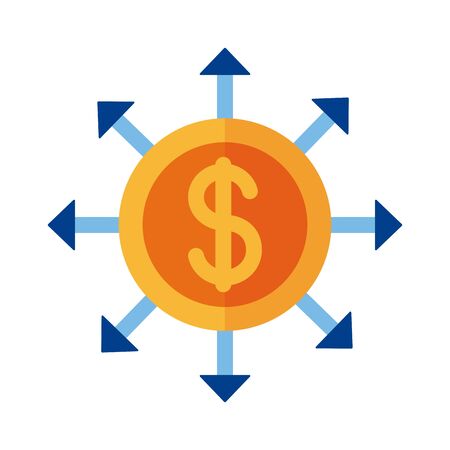Understanding Debt Consolidation
If you’ve found yourself juggling several monthly repayments, you’re definitely not alone—many UK families are in the same boat. So, what exactly is debt consolidation? In a nutshell, it’s a way to roll multiple debts, like credit cards, personal loans or store cards, into a single, more manageable monthly payment. The main aim is to simplify your finances and ideally reduce the total amount you pay each month. In the UK, debt consolidation can cover unsecured debts (think credit cards, overdrafts and payday loans), but usually doesn’t include things like mortgages or student loans. By putting all your debts together, you might even be able to secure a lower interest rate—helpful for households looking to stretch their budget further. But before jumping in, it’s good to understand exactly how this works and what types of debt are typically included for UK families.
2. Common Reasons UK Families Consider Debt Consolidation
If you’ve ever found yourself juggling multiple bills each month, you’re definitely not alone. In the UK, it’s actually quite common for families to think about debt consolidation as a way to make life a little easier. Let’s chat about some everyday situations that might push people in this direction.
Juggling Multiple Monthly Payments
Many families have several credit cards, maybe a personal loan or two, and perhaps even an overdraft hanging over their heads. Keeping track of all those due dates and minimum payments can be stressful and confusing—sometimes it feels like you need a spreadsheet just to stay on top of things!
High Interest Rates
Credit cards in the UK often come with high interest rates. If you’re only able to pay the minimum amount each month, most of what you pay goes straight towards interest rather than chipping away at the actual debt. It’s no wonder so many people start looking for ways to combine everything into one more manageable payment with (hopefully) a lower overall rate.
Common Debt Headaches Faced by UK Households
| Situation | How It Feels | Why Consolidation Appeals |
|---|---|---|
| Multiple credit card bills | Overwhelming & easy to forget payments | Simplifies finances into one monthly bill |
| High interest rates | Pays more in interest than reducing debt | Chance to get a lower interest rate overall |
| Personal loans + overdrafts + store cards | Difficult to track what’s due when | Easier management and budgeting |
| Unexpected expenses (car repairs, medical bills) | Adds more pressure to an already tight budget | Combining debts can free up cash flow each month |
The Emotional Toll of Debt Management
Let’s not forget: managing lots of different debts doesn’t just hit your wallet—it affects your peace of mind too. Many UK families say that having so many bills makes them anxious or stressed, especially if money is already tight thanks to rising living costs. That’s why consolidating debts into one payment can sound like such a relief.

3. The Pros of Debt Consolidation for Brits
If you’ve found yourself juggling several debts, you’re not alone—many UK families face the same challenge. Debt consolidation can offer a real lifeline, and here’s why it might be worth considering.
Easier Budgeting
One of the biggest advantages is that it simplifies your finances. Instead of remembering multiple payment dates and different lenders, you’ll have just one monthly payment to keep track of. This makes budgeting much more straightforward and reduces the chance of accidentally missing a payment.
Potentially Lower Monthly Payments
Another benefit is that consolidating your debts could lower your monthly outgoings. By moving all your existing debts into a single loan—often with a lower interest rate—you could end up paying less each month. For many British households, this means having more breathing space in their budget to cover everyday essentials or even save a little for a rainy day.
Less Stress for Households
Let’s be honest: dealing with debt can be stressful and overwhelming. Having just one payment to worry about can really help take the pressure off. It’s much easier to stay on top of things when everything is in one place, giving you more peace of mind and helping you feel in control again.
A Step Towards Financial Stability
For families across the UK, these benefits add up to greater financial stability. If you’re looking for a practical way to manage your debts and reduce money-related stress, debt consolidation could be worth exploring as part of your plan for a brighter financial future.
4. Possible Pitfalls and Risks
If you’re considering debt consolidation in the UK, it’s important to go in with your eyes wide open. While rolling your debts into one monthly payment can sound like a breath of fresh air, there are several risks and potential downsides that every family should weigh up first.
Hidden Fees and Unexpected Costs
Some debt consolidation loans come with sneaky fees—think arrangement fees, early repayment penalties, or even insurance add-ons. These costs can quickly add up and eat into any savings you hoped to make by consolidating your debts. Always check the small print before signing anything!
Impact on Your Credit Score
Applying for a new loan involves a credit check, which can temporarily lower your credit score. If you miss payments on your new loan, your credit rating could take an even bigger hit. In some cases, if you close old accounts after paying them off, you might shorten your credit history, which isn’t always great for your score either.
Secured vs Unsecured Loans: What’s at Stake?
| Secured Loan | Unsecured Loan | |
|---|---|---|
| Main Feature | Tied to an asset (usually your home) | No collateral required |
| Risk Level | High (your home is at risk if you don’t keep up repayments) | Lower (no immediate asset at risk) |
| Interest Rates | Often lower than unsecured loans | Can be higher, depending on credit score |
| Consequence of Defaulting | You could lose your home | You may face court action or bailiffs, but no asset is directly at risk |
The Temptation to Borrow Again
This is a classic pitfall: once your debts are consolidated and those old credit cards have a zero balance, it’s all too easy to start spending again. Without changing spending habits, you could end up with even more debt than before.
A UK-Specific Warning: Debt Management Plans (DMPs) and IVAs
If you use a debt management company or enter into an Individual Voluntary Arrangement (IVA), be aware these solutions also come with risks—such as extra fees and long-term effects on your credit file. They might be right for some families, but only after careful consideration.
In short, while debt consolidation can be a helpful tool for many UK households, it’s not without its dangers. Always do your research and consider getting advice from a qualified debt adviser before jumping in.
5. Comparing Alternatives Available in the UK
Before jumping into debt consolidation, it’s wise to know what other options are out there for UK families. Debt consolidation can sound like a quick fix, but sometimes there are better routes depending on your situation. Let’s take a brief look at some popular alternatives you might consider.
Debt Charities and Free Advice
If you’re feeling overwhelmed, reaching out to a debt charity is often the first step many Brits take. Organisations like StepChange or National Debtline offer free and confidential advice tailored to your personal finances. They can help you understand all your choices, including consolidation, and may even negotiate with creditors on your behalf.
Individual Voluntary Arrangements (IVAs)
An IVA is a formal agreement between you and your creditors to pay back debts over a set period—usually five years. It’s legally binding, so once it’s set up, creditors must stick to it. IVAs aren’t right for everyone, but they can help if you have multiple debts and want a structured solution without going bankrupt. Just keep in mind that IVAs do affect your credit score and may come with fees.
Citizens Advice Bureau Support
The Citizens Advice Bureau is another fantastic resource for UK residents. Their advisers can walk you through all your options, from budgeting tips to more formal debt solutions. The best part? Their help is completely free and impartial, so you don’t need to worry about being pushed towards products or services that aren’t right for you.
Choosing What Works for You
Ultimately, the right path depends on your circumstances—there isn’t a one-size-fits-all answer. Whether it’s talking things through with a charity, setting up an IVA, or exploring consolidation loans, getting proper advice can make all the difference. Don’t feel pressured into making a decision straight away; take time to compare all the alternatives and see which option gives your family the most breathing space.
6. Factors to Weigh Before Deciding
Before diving into debt consolidation, its important for British families to sit down and have a real think about a few key factors. First up, take an honest look at your current financial situation. How much do you owe, who do you owe it to, and what are your monthly outgoings compared to your income? Being clear on these basics can help you see if consolidation is even a practical option.
Think About Your Future Plans
Are you planning any big life changes—like moving house, changing jobs, or growing your family? These could affect your ability to keep up with repayments, so it’s worth considering how debt consolidation fits with your future goals.
How Will This Impact Your Credit?
Another major point: what will debt consolidation mean for your credit score? In the UK, taking out a debt consolidation loan might cause a short-term dip in your credit rating because of the new credit check and account opening. However, if you make payments on time, it could actually help improve your score in the long run. On the flip side, missing payments could make things worse.
Consider the Costs
Make sure you look at all the costs involved—not just interest rates but also any fees for setting up the new loan or closing old accounts. Sometimes, the numbers aren’t as rosy as they first appear!
Ask for Advice If You’re Unsure
If it all feels a bit overwhelming, don’t be shy about seeking advice. There are loads of free services across the UK—like Citizens Advice or StepChange—that can help you weigh up your options based on your unique circumstances.
7. Next Steps & Where to Get Advice
If you’re thinking about debt consolidation, it’s completely normal to feel a bit unsure about your next move. The good news is that there are plenty of trustworthy places here in the UK where families can get reliable guidance. One top resource is MoneyHelper, a free and impartial service backed by the government. They offer clear information, online tools, and even one-to-one support so you can explore your options without pressure.
Another helpful route is to speak with a local Citizens Advice Bureau. Their advisors understand the ins and outs of debt solutions and can help you work out what might suit your family best. If you prefer online research, look for organisations like StepChange or National Debtline for more tailored advice.
Tips for Making a Confident Decision
- Take your time: There’s no rush – weigh up all your options before making any commitments.
- Ask questions: Don’t be shy! Ask advisors to explain anything you’re unsure about until it makes sense to you.
- Check credentials: Make sure anyone you speak to is properly qualified and works for a recognised organisation.
- Get everything in writing: It’s always helpful to keep records of advice given, agreements made, and any figures discussed.
No matter which direction you choose, remember you don’t have to figure things out alone. Reaching out for advice is a smart first step and shows you’re taking control of your finances. With the right support, UK families can make confident choices about debt consolidation and find a solution that feels right for them.


